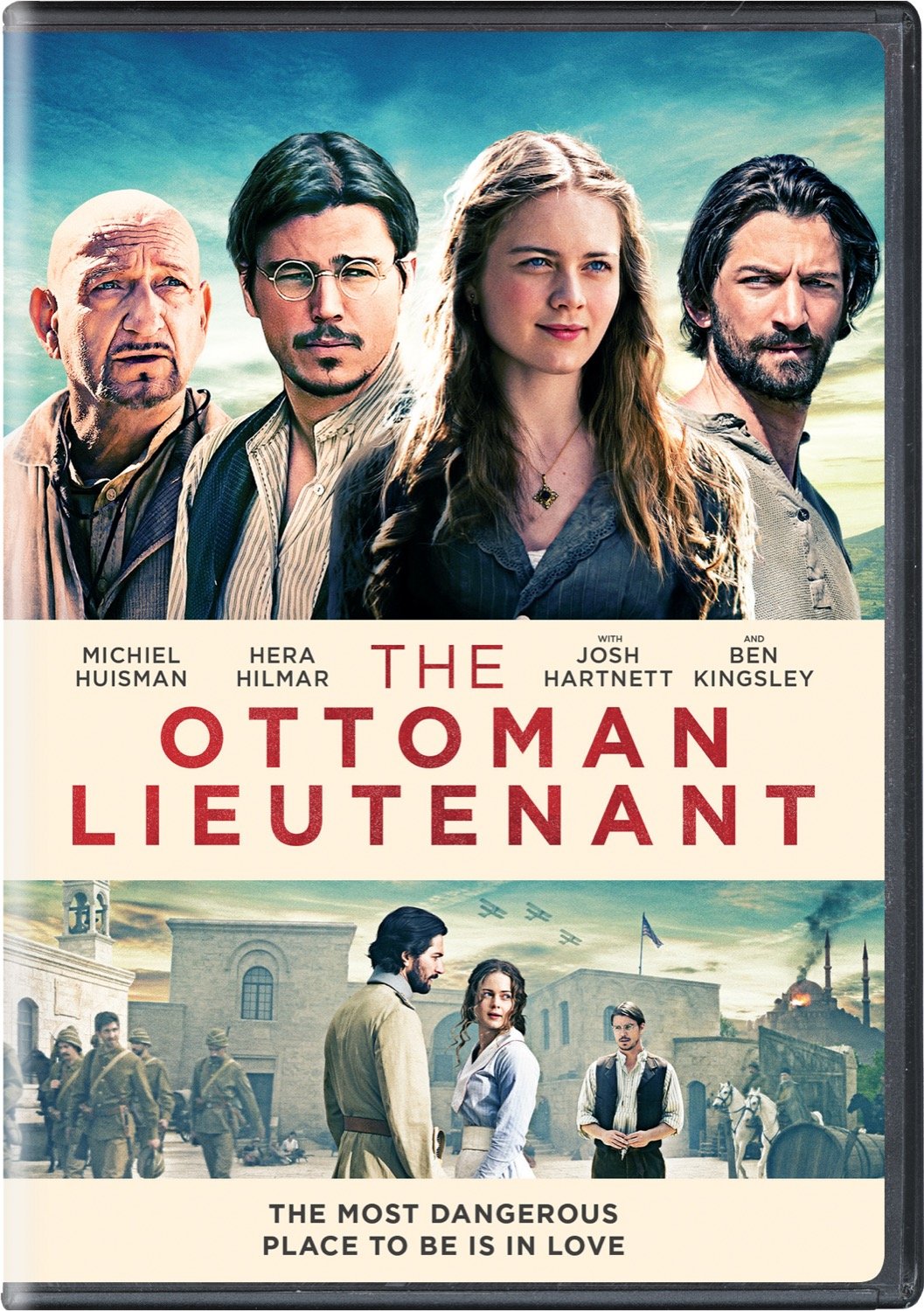Years ago, back in the opening few months of this blog, I reviewed a movie called The Promise. That movie, set against the backdrop of the First World War and accompanying Armenian genocide in the Ottoman Empire, wove a poignant, tragic tale of love and family found and lost that deftly interacted with its historical material, elevating every element of its filmmaking. While scrolling through Netflix recently, Heather and I noticed a movie with what seemed to be a similar premise. The synopsis for the Ottoman Lieutenant hinted at that same sense of trauma, loss of innocence, and redemptive hope in the story of an American nurse who meets a charming Ottoman officer in 1914 on the eve of war. I feel fairly confident that this was indeed what The Ottoman Lieutenant was aiming for, yet unfortunately, I can equally confidently say that it flies wide of its mark.
The film follows the fictional story of Lillie Rowe, a young nurse from New York City that finds her adventuresome, humanist spirit confined by the racism and sexism of her home. Seeing a chance to escape, she embarks on a mission to bring much needed supplies to an American mission hospital in eastern Anatolia. When those supplies are lost en route, however, she instead volunteers her services and makes a home in the Ottoman Empire. While there, she meets a dashing young lieutenant who begins to vie for her affections with Lillie’s American coworker Dr. Jude Gresham even as the guns of August begin to sound and both Russian invasion and Ottoman oppression loom over the local poverty-stricken Armenian communities.
There are a number of possible threads that The Ottoman Lieutenant could pursue in such a potent premise. Most obvious of course is the genocide of Armenians at the hands of partisans and ultimately the Ottoman state; a wider expose of the brutality of armies towards civilian populations, especially the Russians; even a critique of American attitudes towards non-Western, non-Christian peoples. All of these are present in some way, and yet none are truly fulfilled, often because the others get in the way. The story is in fact too early to truly address the genocide, as that would occur largely as a result of scapegoating Armenians for the Ottoman defeat in the campaign that just opens by the end of the movie (and an element of that scapegoating seems to even be given credence, with a band of anti-Ottoman Armenian bandits playing a minor role as villains in the rising action). Russians are portrayed as almost cartoonish brutes, never speaking a word of English (as opposed to the Turkish forces and side actually responsible for ethnic cleansing, who all speak flawless English for the benefit of Miss Rowe), and Dr. Gresham’s blatant Islamophobia is oddly offset by the fact that in a story of eastern Anatolia in 1914, Islamophobia feels like the least pressing nuance to add. Further, when the genocide does make its explicit appearance, it feels out of place, almost tacked on, simply for the benefit of slight character development and to drive the personal love story of the main characters.
As a result of all this, I still do not quite know what to make of The Ottoman Lieutenant. As an expose of historical tragedy, it largely fails for me (not least because it’s general history of the First World War is very bad, mis-dating some things and mischaracterizing others). As a period romantic drama, it succeeds just fine, with generally accurate material culture and a gorgeous, little-seen setting. There are some topics, however, that seem to call for deeper thought whenever used, however, and if all that can be said of a movie with this historical setting is that it is a serviceable romance, I can only say that that film has failed in its historical obligations.

One reply on “A Muddled Message: Netflix’s The Ottoman Lieutenant”
Thank you for this review. It was definitely a romance movie. I am not a history buff but live with one and could tell straight away that the movie was too soft on any of the war themes. As a female what I did like is that the main character was a strong women (of course it had to be in a romance movie though and not purely historical). Representation matters. It has now interested me in the subject.